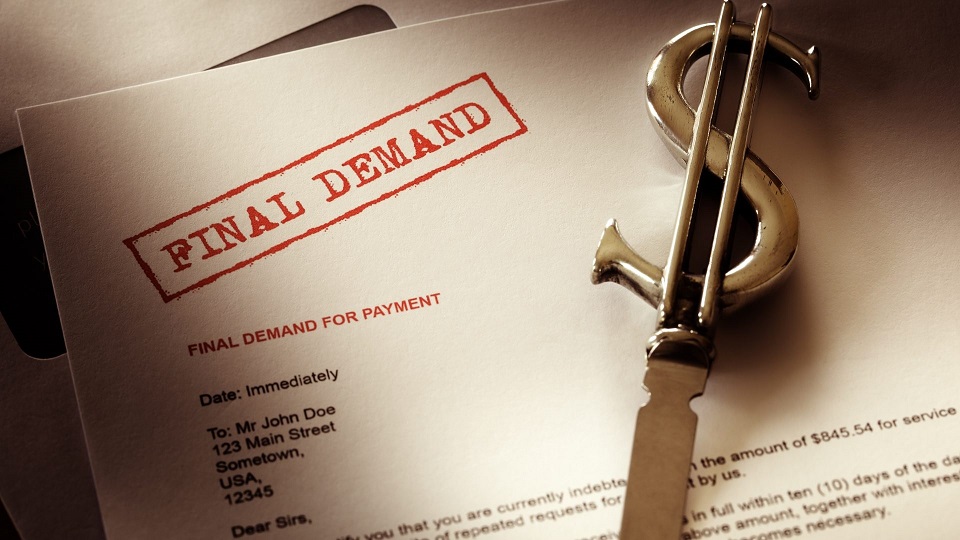Cash fuels a business. Cash is not merely a numerical figure on a balance sheet; it represents the vitality of a business and its potential to drive entrepreneurial ventures forward. To maintain a healthy cash flow, it is important for businesses to diligently pursue outstanding payments.
Business-to-business debt collection is the process of recovering unpaid debts between businesses. In such circumstances, it is important for a business to assess when it is time to consider legal action as a means of business debt collection. This article explores the factors that signal the need for legal intervention and the considerations businesses should keep in mind before taking this step.
Exhaustion of Amicable Resolutions
Before resorting to legal action, businesses should make genuine efforts to resolve the debt through amicable means. This involves open communication with the debtor, offering flexible payment arrangements such as extended terms or installment plan, and engaging in negotiation or mediation. This approach not only helps maintain business relationships but also increases the likelihood of successfully recovering the outstanding debt without going to court. By genuinely exhausting all possible avenues for amicable resolution, businesses demonstrate good faith in their debt collection efforts.
Debt Amount and Viability
When contemplating legal action, businesses should carefully assess the amount of the debt in question and its potential impact on the company’s financial well-being. Pursuing legal recourse should be proportional to the amount owed, ensuring that the costs associated with litigation do not outweigh the potential recovery. Legal professionals specializing in debt collection can help businesses evaluate the viability of the case and determine the most appropriate course of action.
Documentation and Evidence
Building a strong case for business debt collection requires meticulous documentation and evidence. Businesses should ensure they have accurate and up-to-date records of the debt, including invoices, contracts, and communication history with the delinquent customer. This documentation will be vital in establishing the validity of the debt and supporting the legal claim.
Time and Cost Considerations
It is important to recognize that legal action entails challenges, including the investment of time and financial resources. Lawsuits can be time-consuming and divert attention from other critical business operations. Businesses must carefully weigh the potential benefits against the costs and evaluate whether pursuing legal action aligns with their overall goals and priorities.
Business Debt Collection through Legal Action
Pursuing legal action should be viewed as a last resort, as it can be time-consuming, costly, and potentially strain business relationships. Businesses should always prioritize protecting their financial interests while maintaining a balanced approach to business debt recovery. However, when all other avenues have been exhausted, a legal action may be the most viable option to protect the business’s financial interests.
In the United States, several laws govern business-to-business debt collection practices to ensure fairness and protect the rights of both debtors and creditors. These include:
- Fair Debt Collection Practices Act (FDCPA): Although primarily designed to regulate consumer debt collection, certain provisions of the FDCPA also apply to B2B debt collection. The law prohibits abusive, deceptive, and unfair practices when attempting to collect debts, including harassment, false statements, and unfair collection methods.
- Uniform Commercial Code (UCC): The UCC is a comprehensive set of laws that governs commercial transactions, including the sale of goods and the rights and remedies of parties involved in debt collection. It provides guidelines on issues such as contract formation, obligations, warranties, and remedies for breach of contract.
It is important to note that B2B debt collection is primarily governed by contract law, which outlines the rights and obligations of parties involved in the debt agreement. Additionally, while the laws mentioned above provide a general framework, specific circumstances and factors may influence the applicability and interpretation of these laws. It is recommended to consult with legal professionals who specialize in debt collection to ensure compliance with all relevant laws and regulations.
Reserve Rights Attorneys, PC
Winning is our goal but your business is our priority. Reserve Rights Attorneys, PC is a group of hardworking legal professionals who share a commitment to help companies face the legal challenges that come with running a business. We have a team of business collection attorneys trained to find the most efficient and beneficial solution to collect receivables.
Our areas of expertise include:
- Business Debt Collection
- Dispute Resolution
- Contract Litigation
- Corporate and Business Litigation
- Fraud Litigation





